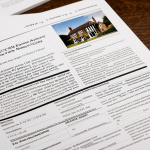Core legal duties every UK landlord must fulfil
Landlords in the UK face strict uk landlord responsibilities designed to protect tenants and ensure safe, well-maintained rental properties. Central to these legal obligations are mandatory safety certificates and regular checks. For instance, landlords must provide a valid gas safety certificate yearly after a qualified engineer inspects gas appliances. Electrical inspections are also crucial under property rental laws, often requiring five-yearly checks to meet safety standards.
Deposit protection is another key requirement. Under UK law, landlords must protect tenant deposits using government-approved schemes, safeguarding tenant funds and complying with strict compliance requirements. Additionally, landlords must provide clear documentation, including written tenancy agreements and prescribed information detailing deposit protection, ensuring transparency and legal clarity.
Also to see : Navigating uk property auctions: essential pitfalls to avoid for a savvy investment
Failing to meet these duties can lead to substantial penalties, underscoring the importance of landlords understanding and adhering to their full scope of uk landlord responsibilities. Knowledge of these core duties not only meets legal standards but also fosters a positive landlord-tenant relationship and smooth property management.
Managing tenant deposits and documentation
Effectively managing deposit protection is a core part of uk landlord responsibilities. Landlords must place tenant deposits into government-approved schemes within 30 days of receipt. This ensures tenants’ funds are safeguarded and landlords meet legal obligations on deposit handling. Failure to protect deposits correctly can result in hefty fines and require landlords to repay the deposit plus penalties.
In the same genre : Exploring the effects of recent uk housing policy changes on future property development opportunities
Equally important is the provision of clear tenancy agreements and all required legal paperwork. A written tenancy agreement outlines the rights and responsibilities of both parties, reducing disputes. Landlords must also supply prescribed information about the deposit scheme used, including details on how tenants can retrieve their deposit at the end of the tenancy.
Right-to-rent checks are another compulsory part of the rental process under property rental laws. Landlords must verify that tenants have the legal right to reside in the UK before granting occupancy. These checks must be properly recorded as part of the landlord’s compliance requirements. Neglecting this duty can lead to prosecution and fines.
In summary, diligent handling of deposits, clear documentation, and careful right-to-rent checks uphold the landlord’s legal obligations and preserve trust with tenants.
Core legal duties every UK landlord must fulfil
UK landlords must strictly observe a series of legal obligations set out by property rental laws to safeguard tenants and uphold property standards. These uk landlord responsibilities encompass mandatory safety checks, deposit handling, and clear documentation.
A critical duty is ensuring all essential safety certificates are valid and current. This includes obtaining an annual gas safety certificate by a qualified engineer and conducting regular electrical inspections, typically every five years, to comply with safety standards. Furthermore, landlords must provide an Energy Performance Certificate (EPC) before letting, fulfilling another key compliance requirement.
Handling tenant deposits correctly is mandated by law. Landlords must protect deposits within government-approved schemes promptly and provide tenants with prescribed information. This ensures transparency and protects tenant funds, aligning with deposit protection requirements.
Comprehensive, written tenancy agreements form an important part of legal obligations, clearly outlining each party’s rights and responsibilities. These agreements, alongside properly conducted right-to-rent checks, demonstrate compliance with UK regulations designed to prevent illegal occupation.
Meeting these core duties is essential for landlords not only to avoid penalties but also to maintain lawful, trustworthy management under evolving property rental laws.
Core legal duties every UK landlord must fulfil
UK landlords must navigate multiple legal obligations under property rental laws to operate lawfully and protect tenants. Central to these duties are maintaining all required compliance requirements related to safety and documentation. Landlords must consistently obtain and renew mandatory safety certificates, including the annual gas safety certificate issued by a Gas Safe registered engineer. Additionally, landlords must arrange periodic electrical inspections—commonly every five years—to ensure wiring and appliances conform to safety standards.
Handling tenant deposits correctly is equally critical. The law requires landlords to secure deposits within approved deposit protection schemes promptly and provide tenants with the relevant prescribed information. This transparency supports tenant confidence and meets deposit protection rules stipulated by uk landlord responsibilities.
Providing comprehensive and clear legal paperwork is another core responsibility. Landlords must issue written tenancy agreements articulating rights and duties. This legal documentation underpins strong landlord-tenant relationships and evidences compliance with property rental laws, reducing the risk of disputes and enforcement action.
By fulfilling these key uk landlord responsibilities, landlords demonstrate adherence to their legal duties, safeguarding tenants and sustaining lawful property management.
Core legal duties every UK landlord must fulfil
UK landlords face comprehensive legal obligations under property rental laws designed to protect tenants and guarantee safe, well-managed properties. Central to these uk landlord responsibilities is the strict adherence to mandated compliance requirements, including safety certificates and proper documentation.
Landlords must secure and keep valid mandatory safety certificates, like the annual gas safety certificate issued by a registered engineer. Regular electrical inspections are equally required, typically every five years, ensuring appliances and wiring meet safety standards. Alongside these, landlords must provide an Energy Performance Certificate (EPC) before letting their property, complying with energy efficiency laws.
Equally critical are deposit protection rules. Landlords must safeguard tenant deposits in government-approved schemes promptly and provide tenants with prescribed information about this protection. Accurate and transparent deposit protection fosters trust and meets legal duties.
Issuing clear, written tenancy agreements is also a must. These documents detail the rights and responsibilities of both parties, reinforcing compliance with property rental laws. When properly managed, these legal obligations support lawful operation while minimising disputes with tenants. Meeting these essential duties reflects responsible landlord behaviour and adherence to current uk landlord responsibilities.
Core legal duties every UK landlord must fulfil
UK landlords must meticulously follow property rental laws to meet their uk landlord responsibilities. Central to these legal obligations are obtaining and maintaining all required compliance requirements. This means securing mandatory safety certificates such as the annual gas safety certificate and arranging periodic electrical inspections to ensure safety compliance.
Landlords must also strictly observe deposit protection rules by safeguarding tenant deposits in government-approved schemes and promptly providing prescribed information. This upholds trust and ensures transparency under the law.
Additionally, issuing comprehensive legal paperwork remains crucial. Clear, written tenancy agreements outlining the rights and duties of both landlord and tenant are mandatory. These documents serve as evidence of compliance with property rental laws and help prevent misunderstandings or disputes.
Meeting these core uk landlord responsibilities is not simply about ticking boxes; it establishes a framework for lawful property management, tenant safety, and smooth tenancy administration. Neglecting any aspect risks significant penalties and undermines the landlord’s role under evolving legal obligations.







